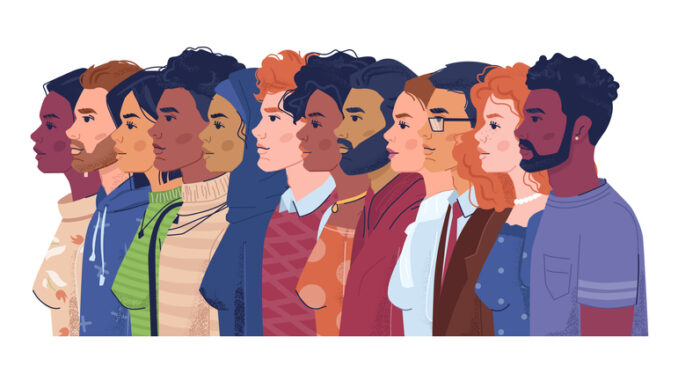
Partha Kar, consultant in diabetes and endocrinology, argues that NHS leaders need to be just as diverse as the general workforce
CREDIT: This is an edited version of an article that originally appeared on The BMJ
“If you’re not at the table, you’re probably on the menu” – an apt saying, when looking at the health service and its leadership. If there’s been any silver lining at all to the pandemic, it’s that it’s brought into sharp focus the many health inequalities based on ethnicity and this has moved the dial in terms of conversations about these inequalities, though many would argue that actual progress has been painfully slow.
Last November, prompted by concerns of whistle-blowers, NHS England and NHS Improvement’s north west directorate issued a highly critical review of the Christie NHS Foundation Trust. “An experience of bullying, harassment and racial prejudice was described, along with a lack of respect at work,” the report stated.
This focus on racial inequalities is not something that needed a pandemic for the discussion to be started, yet conversations in NHS leadership circles about health inequalities are still distinctly uncomfortable. In the nursing and medical professions there’s a striking lack of diversity in more senior roles; of NHS England’s board members, at the last count, just one of 11 members wasn’t white (as it is on the website as I write this).
We hear that ‘times are changing’ and progress is ‘a matter of time’ – yet, in the latest NHS shake-up, where the new integrated care systems are in the process of appointing their chief executives, 41 of 44 have made their appointments, and only one isn’t white. A counterargument is that non-executive director representation has increased—but anyone familiar with NHS structures will know where power and responsibilities sit, and merely increasing non-executive director numbers to make boards’ proportions look better is sleight of hand at best.
The broader question must be whether NHS leaders are meant to represent the health service workforce or, indeed, the wider population they serve. There’s a significant drop-off in representation of ethnic minority backgrounds as leadership roles become more senior.
In nursing leadership there is a similar resonance. Take Filipino nurses, who comprise about 10% of the current nursing workforce. If anyone working in the NHS denies the value of these nurses to the service, they’re either blind or biased. Bands 9 and 8D are two of the highest banding posts in the NHS, and about 5,000 individuals occupy these roles. The number of Filipino nurses in there? Two. When some of the best in the nursing workforce routinely have higher posts shut off from them, there’s a problem in the structure.
Not homogenous
‘Non-white’ or ‘BAME’ groups are not a homogenous mass; don’t assume that you’ve ticked your box of obligation by appointing someone ‘non-white’. There’s a fundamental difference between someone Black and someone South Asian, whether in terms of culture, beliefs, or outcomes. Ethnicity, or country of birth, shouldn’t be a barrier to leadership positions, especially when health outcomes are so closely linked to ethnicity.
In fact, terms such as ‘BAME’ and ‘non-white’ obscure an even bigger problem because, once we explore the data further, and look at the experiences of Black healthcare staff, the issue becomes more stark. We talk about health inequalities in the population, but the data suggest that we struggle to consider people for policy roles who will have the cultural understanding, and appreciation of nuance, to work with communities to help close that gap.
As well as representation, this is about respecting your workforce and appreciating talent. To anyone suggesting that ‘the best person must win’, you need to be ‘in the game’ to win; you won’t stand a chance if you’re warming the benches. Detractors are quick to point out a lack of applicants, but stories abound of discrimination and ‘internal candidates’ being offered positions – and it’s tricky to be a role model when, like others in leadership roles, you’re battling through treacle—and you’re the one with shoes of lead.
Raise your voices
But role models are starting to appear. Conversations, though uncomfortable for some, are happening. I’d encourage everyone to raise their voices and make those conversations louder. We need independent panels – maybe even blind interviews. If the NHS can find time to implore other countries’ staff to come and help, it can also ensure that they have the opportunity to progress, and are not simply left to fill the posts ‘others don’t want to do’.
The best person for the job? Yes, always—but on a level playing field, please. If our system can’t do that, or the data show no improvement, perhaps we need to discuss quotas. The NHS Constitution says that the health of all people is equal; let’s try to pay more than lip service to that, and get leaders who can represent less fortunate people accordingly. If we don’t have people with lived experience in positions of power, we’ll do the same as we’ve always done, in a system soaked in bias.
Lastly, the same applies to the staff and how they’re represented or looked after by their leaders. A new BMA report has found that over 75% of ethnic minority doctors surveyed have experienced racism, and many have quit, or fear never seeing growth and mental peace, if they stay with the NHS. That doesn’t chime with the notion of the NHS’s ‘zero tolerance to racism’.
Words are easy – actions are tougher – which is why we need representation in leadership to take such issues seriously.


Be the first to comment